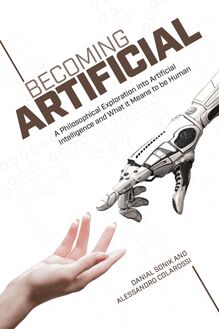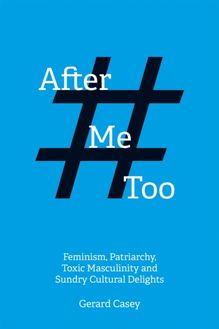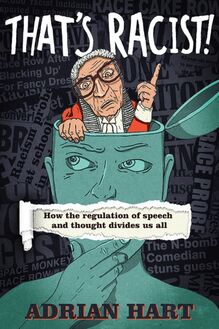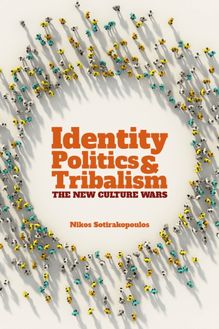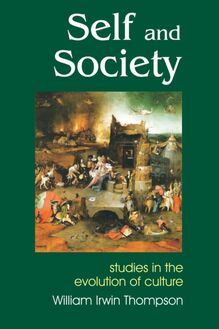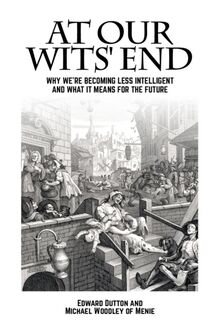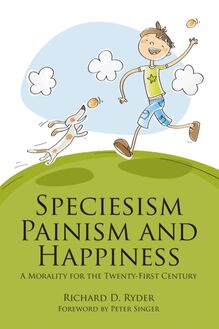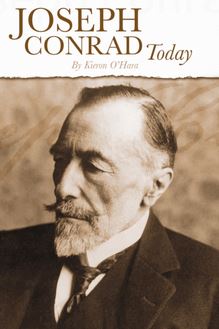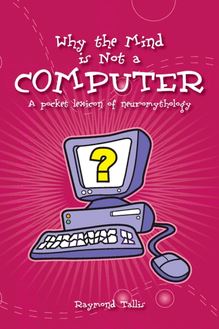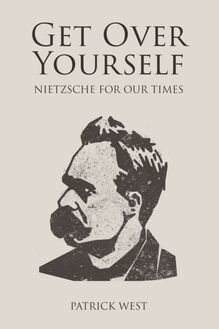Referendum Roundabout , livre ebook
71
pages
English
Ebooks
2016
Vous pourrez modifier la taille du texte de cet ouvrage
Obtenez un accès à la bibliothèque pour le consulter en ligne En savoir plus
Découvre YouScribe en t'inscrivant gratuitement
Découvre YouScribe en t'inscrivant gratuitement
71
pages
English
Ebooks
2016
Vous pourrez modifier la taille du texte de cet ouvrage
Obtenez un accès à la bibliothèque pour le consulter en ligne En savoir plus
Publié par
Date de parution
14 décembre 2016
Nombre de lectures
0
EAN13
9781845404161
Langue
English
Publié par
Date de parution
14 décembre 2016
Nombre de lectures
0
EAN13
9781845404161
Langue
English
The Referendum Roundabout
Kieron O’Hara
SOCIETAS
essays in political
& cultural criticism
imprint-academic.com
2016 digital version converted and published by
Andrews UK Limited
www.andrewsuk.com
Copyright © Kieron O’Hara, 2006
The moral rights of the author have been asserted.
No part of any contribution may be reproduced in any form without permission, except for the quotation of brief passages in criticism and discussion.
Societas
Imprint Academic, PO Box 200, Exeter EX5 5YX, UK
Preface
For over a decade, Britain has lived under the shadow of a referendum. Great issues of state, ranging from the ratification of the Maastricht Treaty, Britain’s joining of a single currency and signing up to the proposed EU constitution have been the subject of promises or arguments that they should be decided by a single-issue nationwide plebiscite. At the same time, smaller regions and some cities and towns of the United Kingdom have actually been consulted with respect to alternative systems of government. Decision by referendum, particularly when questions of governance themselves are raised, often seems less controversial and more straightforward than via the standard political process.
But do we really know how controversial referendums work? In science, the abstraction process is conceptually very simple; generate observations and experiments, and assess theories against that background. There is no such simplicity in constitutional politics. There has been, in the United Kingdom, a single national referendum on a non-trivial issue; in 1975, the people were consulted about the continuation of membership of the European Economic Community.
My aim in this essay is to examine the events of 1975 and their historical background to try to generate a few thoughts about the advantages and disadvantages of the use of large-scale referendums in the narrow context of the United Kingdom. Of course, the conclusions I reach will of necessity be hedged with the caveat that the relevant sample size is 1.
Nevertheless, this single case study is surely suggestive of the problems and simplifications implicit in using a plebiscite to make complex and far-reaching decisions. Referendums are regularly called for, have been used fairly frequently in regions of the United Kingdom since 1997, and would certainly have been implemented at the national level in 2006 had the French supported the EU constitution. Whether one supports the use of a referendum to decide whether the UK joins the euro zone, or signs the EU constitution, or continues to ban hunting, the abstract question of the place of referendums in the informal British constitution remains pressing. The process of democratic consultation on a single issue is supposed, by supporters of a referendum, to lend legitimacy to the outcome. There are interesting philosophical arguments both for and against that supposition, but surely more telling is the concrete experience of an actual referendum. Was 1975 a high spot for inclusive, democratic politics? Did the arguments shine through the rough-and-tumble? If not, then surely the proponents of referendums have a lot of explaining to do, however polished their arguments are in the abstract.
The argument of this essay, as it unfolds, will be a combination of historical narrative, and constitutional description and theory. Under the first heading I shall discuss the development of the EEC, and the repeated attempts of Britain to join it, the context that explains so much of the conduct of 1975 (Chapters One and Two), the two coalitions of campaigners which assembled in 1975 (Chapters Five and Six), the conduct of the campaign (Chapter Seven), the results (Chapter Eight), and the post-1975 history of the European question (Chapter Nine). Under the second I shall discuss the use of referendums in Britain and elsewhere prior to 1975, and the theoretical cases for and against (Chapter Three), the rules of 1975, and the process of their creation (Chapter Four), and the use of referendums after the 1975 experience (Chapter Ten).
A few final preliminaries. First of all, let me thank Andrew Denham for comments and discussions of the manuscript and issues raised, and Anthony Freeman and Imprint Academic for all their help. Secondly, let me respond to one of the more frequent remarks that people make to me: I use the plural ‘referendums’ as opposed to ‘referenda’, following David Butler, who justifies the choice by advice from the editors of the Oxford English Dictionary. Although my Latin is close enough to zero to prevent me from properly appreciating their reasoning, I can recognise a convincing argument from authority when I see one.
And thirdly, in many places in this book I have a little fun with the bizarre behaviour and strange decisions of the politicians of the day. There is nothing wrong with pointing out the oddness of many of our rulers. But let me affirm my belief that politicians of all parties belong to a much-maligned species, which (at least in Britain) does a creditable job, under conditions of uncertainty and rapid change, with remarkably little corruption, in return for comparatively low recompense and outrageous intrusion into private life. I would not want this book to be seen as part of the general trend towards distrust of and disillusion with politics. Indeed, an important part of my thesis is that politicians should be less wary of taking decisions, at least when bold decision-making is required.
1. Non!
Euro-Vision, Anglo-Disdain
The positive vision of a united Europe has a long pedigree from the Romans to Charlemagne to Napoleon, thanks to geography (there are relatively few natural frontiers in Europe, and correspondingly few barriers to the expansion of booming nations), ego and logic (why have lots of tiny states with lots of different systems of money, measurement, etc, when you could have one big one run on streamlined administrative lines?). All schemes overreached, and failed.
The united Europe that has grown today was founded on the negative idea of the failure of the nation-state system and the need to prevent war. The ‘Great Powers’ theory of diplomacy allowed big nations to pursue aggressive policies towards each other, as long as the network of alliances and treaties between them stopped any one of them getting more powerful than the others. This was a truly terrible theory; all that can be said for it is that it kept peace in Europe, except when there were wars.
The worst point of friction was in the West of the continent. Germany, new-minted and efficient, and France, slowly crumbling but acutely conscious of its heritage and the universality of its founding principles, proved to be too big to share the schoolyard. Germany never had much trouble rolling over its arrogant and complacent enemy, but its aggression meant that effective coalitions could be formed against it. The complete lack of wisdom of statesmen didn’t help; in 1918, France disastrously insisted on impossible conditions for German surrender. It took Germany a mere couple of decades to engage France again.
1945 saw a little more far-sightedness. It was held, not unreasonably, that the Great Power system had failed and a new order should link European states so inextricably that war would be unthinkable. The main theorist of this view was Jean Monnet, who had indeed suggested the idea as early as 1940, and the cheerleader-in-chief was Britain’s wartime Prime Minister Winston Churchill. Churchill, rejected by the electorate in 1945, spent an amiable six years as leader of the opposition being an international statesman and celebrity, happily upstaging Clement Attlee by coming to a rapid and eloquent understanding of the post war settlement.
But though Britain was sympathetic, it was not involved, and the union that gradually emerged from a decade and more of painstaking negotiation and institution-building was centred around conservative Mitteleuropa . With the lack of official British input into the negotiation process, the idea gradually developed of a European Community as a superstate based around the Rhineland that would be a Catholic buffer against the rise of communism.
The European Union as we know it came into being in 1957, with the ratification of the Treaty of Rome. The original proposal from Dutch Foreign Minister Jacques Beyen was for a customs union with full free trade, but no-one thought that France would drop its protectionist instincts, and it didn’t. Free trade was only applicable to vulgar industry; and although national barriers for agriculture were dropped, free competition was not implemented. Instead food prices were to be maintained, and farmers kept artificially solvent, by an executive based in Brussels. The European Economic Community was born on 25 th March 1957, with France, West Germany, Italy, Belgium, the Netherlands and Luxembourg (‘the Six’). The British dubbed it the ‘Common Market’, the difference in terminology - ‘community’ v ‘market’ - hinting at a difference in understanding that persists, with malign results, half a century later.
There were immediate arguments about whether other countries should be allowed to join. The German Christian Democrats, for example, were happy having united the Catholic centre of Europe and wanted to go no further. Socialists worried that a right wing majority would try to bring in fascist Spain and Portugal. On the other hand, more idealistic feeling supported the idea of a club open to all. The compromise was a clause in the preamble of the Treaty of Rome that invited other countries to join, tempered by strict procedures for evaluating a bid, including provision of a veto for all the member states.
So was created a cordon bleu recipe for trouble.
The British Inferio

